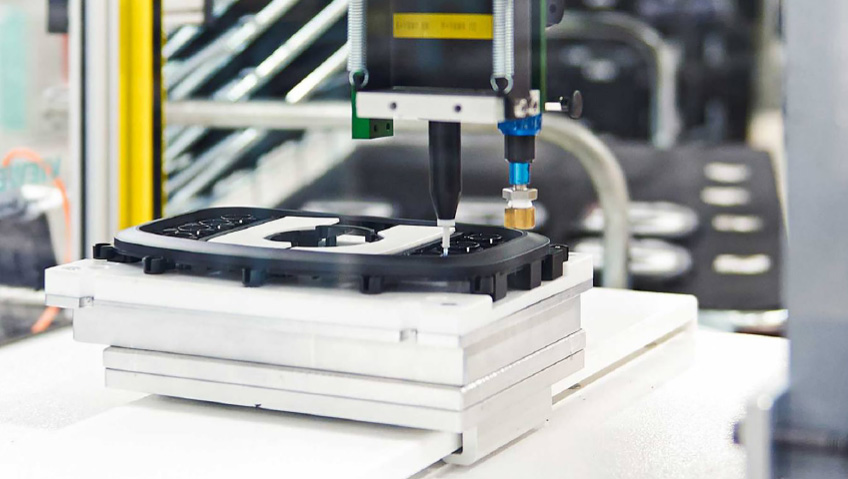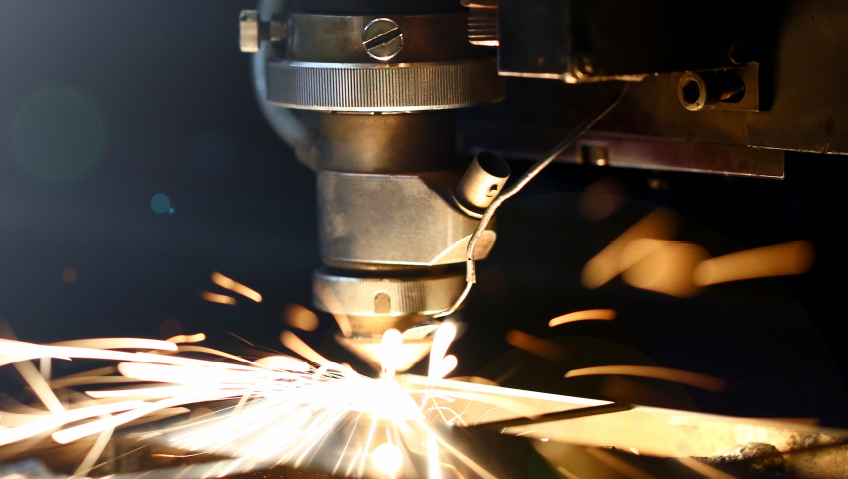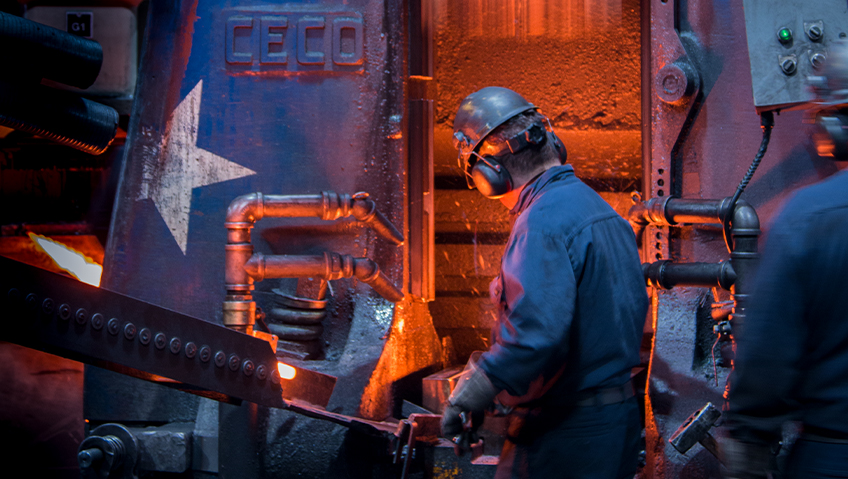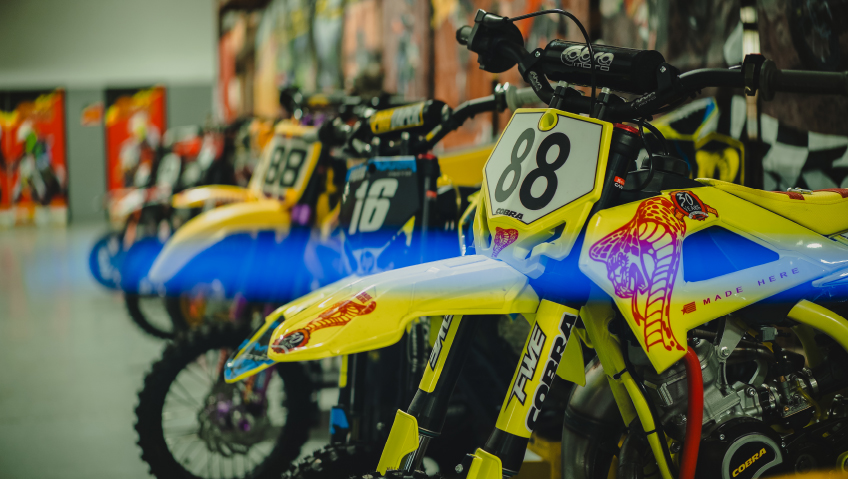After Xymox Technologies was profiled in Manufacturing in Focus in December 2018, the Milwaukee, Wisconsin-based firm merged with the RAFI Group of Germany. This corporate collaboration has the potential to dramatically shake up the North American touchscreen and digital display markets.
Xymox (pronounced “Zy-Mocks”) custom designs and manufactures membrane switches, capacitive touch sensors, and specialized circuitry. Membrane switches are a type of human-machine interface (HMI), made from layers of printed film or other material, that relies on pressure to open and close circuits. Capacitive touch sensors, meanwhile, are used in capacitive touch screens (displays on smartphones, computer tablets, and other products manipulated by the fingertip).
Based near Ravensburg, Germany, RAFI describes itself as “the solution provider for HMI and E2MS [Electronic Engineering and Manufacturing Services]” markets. To this end, RAFI supplies electronic assemblies, electronic systems, and electromechanical components, and offers engineering services.
Despite the merger, much remains the same at Xymox. The company continues to mine its own areas of expertise, but now it has a partner with over 2,300 employees in facilities around the world. RAFI’s broad market reach and core competencies present new opportunities for Xymox.
“Our focus has been membrane switches and capacitive touch sensors for really just the front of the assembly. What RAFI brings to us are all the electronics and everything needed to [move] deeper into the assembly,” says Xymox President and CEO, Bob Hartline.
In return, Xymox will serve as the “manufacturing platform to launch all of RAFI’s capabilities into the United States,” adds Hartline.
He says that his company has not been subsumed by the RAFI Group, even though the latter is a considerably larger business. Going forward, Xymox will “continue doing what we do. Of course, we’ll take input from Germany.”
Xymox’s solutions are used in medical equipment (including IV pumps, defibrillators, and hospital beds), food equipment (ovens, meat slicers, and warmers), and appliances (refrigerators, mixers, and dishwashers). The company’s wares are also utilized in industrial controls for gas pumps and power distribution equipment and in consumer products such as hand-held devices, wearables, and sport accelerometers. Xymox is currently eyeing new markets where RAFI has a presence, including off-road vehicles, construction equipment, and agriculture.
As mentioned in the previous profile, Xymox has a 55,000-square-foot facility in Milwaukee, where it performs a variety of services including sheet-fed printing, design and engineering, laser cutting, optical adhesive lamination, and full production. New ESD (electrostatic discharge) flooring was added to the facility to enhance electronic assembly work.
A showroom was created as well to display “all the different technologies that RAFI is bringing to Xymox. We’ll have a place where customers can come in and look and see and touch and feel all the different types of technology we offer,” says Hartline.
While most of Xymox’s products are custom-made, RAFI “does have a portion of their product line that is off-the-shelf or components-based,” he adds.
Xymox also continues to work with a manufacturing partner in Guangdong, China. Thanks to this connection, Xymox had advance warning about the impending COVID crisis, and began receiving reports about lockdowns and emergency pandemic measures in China back in the fall of 2019, before the virus colonized North America. This advance notice gave Xymox plenty of time to prepare.
By the time COVID hit Canada and the U.S. in 2020 and some businesses were shut down, Xymox already held multiple letters from medical firms stating that the firm was an essential supplier that needed to stay in operation, recalls Hartline. To protect its staff, Xymox quickly introduced hand sanitizer and barriers and implemented shift changes.
Company revenues actually increased at the start of the pandemic, thanks to a soaring need for hospital bed control systems in critical care facilities. Business soon declined, however, and Xymox also had to cope with COVID-related supply chain challenges. The company uses acrylic for its front panel assemblies and due to COVID, acrylic see-through barriers to separate staff from the public in stores and offices became a high-demand item. As a result, Xymox faced a temporary acrylic shortage. Things eventually worked out and Xymox’s supply situation has returned to normal.
The company is ISO 9001:2015 certified and works hard to ensure quality. Parts and products are subjected to multiple tests, including abrasion testing (rubber keypads get rough treatment from an abrasion tester), life testing (to ensure a design meets key aesthetic, electrical, and physical requirements), environmental testing (whether a product meets key temperature cycling standards), and product performance testing.
In addition to following ISO guidelines, Xymox likes to emphasize the notion that quality is everyone’s responsibility.
“We want every person who works on the shop floor here to be the quality person that builds quality into the part. We build parts that go into defibrillators; the defibrillator has to work every single time, as does all sorts of medical equipment. Our operators understand that the part they are working on could save a person’s life,” says Hartline.
Xymox currently has 88 employees, up from about 85 last year at this time. While experience and knowledge are important prerequisites for anyone looking to come aboard, Xymox also considers “how well you fit into the company. Culture is very important to us,” says Hartline.
This company culture centers on four core values: integrity, service, results, and employees. Integrity can be summarized as “how you act when no one is watching: I want our customers to walk away from Xymox knowing if they come here to watch us, whatever they see us doing, they can go back to their office and say, ‘I know Xymox is doing the right thing,’” says Hartline.
Service means always being grateful and gracious to customers, while results refer to the need to constantly improve to achieve goals. As for its employees, Xymox takes a keen interest in workforce well-being and offers staff financial training and office visits from a chiropractor.
“A lot of people would describe our business as a family. We’re a great team and we care about our employees,” says Hartline.
Employees stand to benefit from the RAFI merger, which is slated to expand Xymox’s range and revenues. It’s the latest chapter for a company that began its existence in 1979 as a business unit of the WH Brady Company of Milwaukee. Tasked with making membrane switches, Xymox was spun off as an independent enterprise in the early 1990s.
Discussions with the RAFI Group commenced in 2019. At the time, Xymox was merely looking to form a manufacturing partnership. Collaborating with a European manufacturer, says Hartline, would allow Xymox to “service our customers on both sides of the ocean equally well.” In particular, Xymox wanted to work with the RAFI Group because “they have more experience with touch screens. They’ve been manufacturing touch screens for a lot longer than we have,” he explains.
“We had an excellent meeting with them,” Hartline shares. “Their culture and our culture seemed to be a fit. RAFI is a much larger company but seemed to treat employees the same way we did.”
Negotiations were briefly thrown off-track by the pandemic, but the two returned to discussions in early 2022. As talks went on, it became apparent that RAFI wanted to buy Xymox outright. While RAFI maintains a small division in Seattle, Washington, the otherwise globally successful company was struggling to penetrate the American market.
“The reason that this deal came about was because RAFI wanted a United States presence. They recognized that their attempts at breaking into the market through the operation in Seattle were not meeting their expectations,” says Hartline.
An agreement was reached but before the merger could be finalized, due diligence and federal approval were required. Thanks to ITAR (International Traffic in Arms Regulations) rules, the deal needed to be reviewed by U.S. regulators.
“We had to get approval from the State Department to have a foreign entity own us because we manufacture a few parts for the military. We were hoping this wouldn’t be a showstopper because Germany is our ally,” explains Hartline.
The State Department review was followed by a Treasury Department review. Government approvals were granted in early July 2023, and the merger closed shortly thereafter.
Xymox is eager to spread the news about its partnership via social media and by appearing at more trade shows than it has in the past. Xymox wants to highlight its own capabilities, the merger, “and all the new technologies that RAFI brings to us for the future,” says Hartline.
Again, he stresses the importance of the new opportunities presented by working with RAFI. “We’re not going to just rely on membrane switches and touch screens,” he says. “We want to do the whole user interface assembly. That’s where I think we’ll see some significant growth in the future.”






